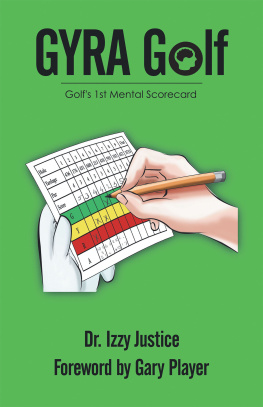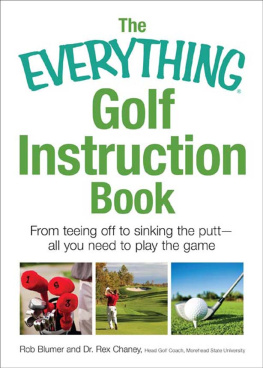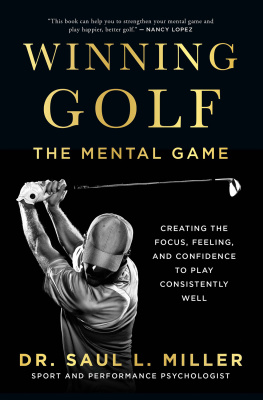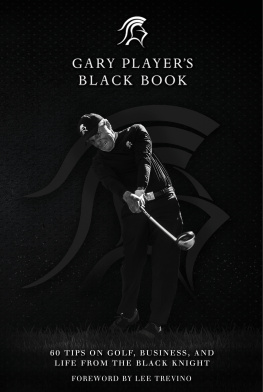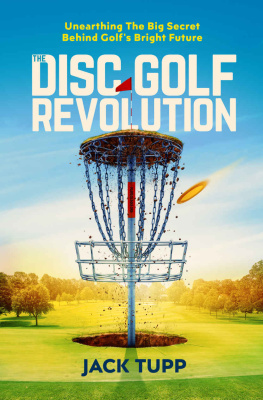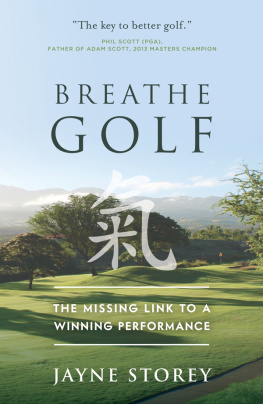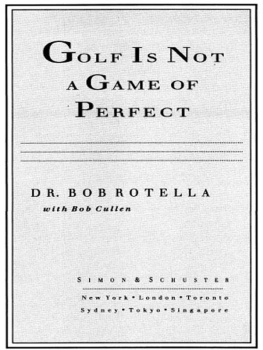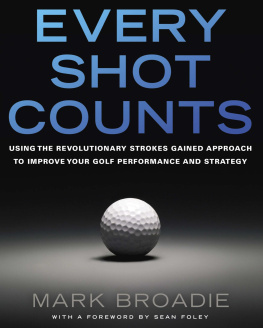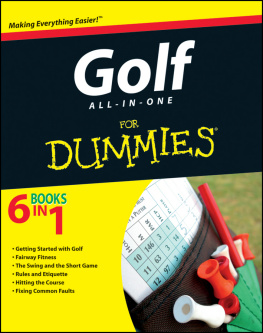GYRA Golf
Golfs 1st Mental Scorecard
Dr. Izzy Justice

GYRA GOLF
Golfs 1st Mental Scorecard
Copyright 2020 Dr. Izzy Justice.
All rights reserved. No part of this book may be used or reproduced by any means, graphic, electronic, or mechanical, including photocopying, recording, taping or by any information storage retrieval system without the written permission of the author except in the case of brief quotations embodied in critical articles and reviews.
iUniverse
1663 Liberty Drive
Bloomington, IN 47403
www.iuniverse.com
1-800-Authors (1-800-288-4677)
Because of the dynamic nature of the Internet, any web addresses or links contained in this book may have changed since publication and may no longer be valid. The views expressed in this work are solely those of the author and do not necessarily reflect the views of the publisher, and the publisher hereby disclaims any responsibility for them.
Any people depicted in stock imagery provided by Getty Images are models, and such images are being used for illustrative purposes only.
Certain stock imagery Getty Images.
ISBN: 978-1-6632-0058-7 (sc)
ISBN: 978-1-6632-0057-0 (e)
Library of Congress Control Number: 2020909443
iUniverse rev. date: 06/08/2020
Dedication
To Stephanie, Lexi, Hunter, and my eternal mentor, Gary Mason.
Acknowledgments
This book would not be possible without the input of so many golfers who participated in the invaluable research and insight into this book. Special thanks to Gary Player, Hunter Justice, David Ross, Matt Ryan, Tim Straub, Seamus Power, Jason Gore, Courtney Hall, Cornel Driessen, and my editor, Anjum Khan.
Contents
I love how golf can bring people, friends, families, and communities together as Ive always said, golf is a friendship factory! It is a gift of time. When I design courses, I take pride in knowing thousands of conversations are going to occur on the property. Memories will be made. Golfers will have a chance to beat their best every time they play. I love knowing that, as a designer and architect of holes, I am testing not just the physical ability of the golfer, but also the ability to make decisions, take risk-reward challenges, take pride in conquering the course, and view failures as a challenge to come back and give it another go. I know I am testing the human brain and its capacity to make good and poor decisions, to create narratives, good and bad, and to tell stories of the battle that occurred on the golf course. I know this because I did the same as a player. I know that I enjoyed the test and I loved the memories of the challenges. I know that the test is both physical and mental, and frankly, more mental than physical.
So you can imagine my surprise when the concept of a mental scorecard was introduced to me. I was quite intrigued as I had not heard of such a thing. Keep a mental score after each shot and each hole? What? How? I know we keep score after each hole, number of shots taken, and this is a measure of your battle against the course. Every golfer knows that the first battle on the course is not against the course, it is against oneself. Can we recover from a bad shot? Can we recover from a bad break? Did we consider all the factors correctly before picking the club and choosing the shot to hit? Is there a way to measure this mental battle?
If you can describe your shoes or any golf club better than you can describe your brain, then you are like the rest of us. This world of neuroscience, understanding how the brain works, has always intrigued me. Technology is allowing us to go inside the tiny neurons of the brain and see where they are going when over a critical putt, after a bad shot, or hole or bad break, and understand for the first time what is happening.
The notion that we can keep mental score was completely foreign to me until I read Dr. Justices work. What a game-changing concept! Why not keep mental score when keeping golf score on the same scorecard? Why not use the mental scores to make adjustments? The golfers brain is constantly working, negotiating with itself, playing roles of judge, jury, prosecutor, defendant, and narrator of the past and future, all without our understanding of what is really happening. Win the mental score first and then you can take on the golf course. This is the right order of battle. I know this to be true from my own experience. The most frustrating part about golf is not losing, but when you lose because of your own mental or emotional mistakes, when you perform below what you know you are capable of.
Dr. Izzy Justice has created golfs first mental scorecard. Unbelievable! It is simple; it is kept on the same scorecard as the golf score, no devices needed, so that you know exactly where your brain is after each shot. This book is easy to read and understand so that you can get to know your own brain as well as any of your clubs. I can see how any golfer of any level would find great value in this. You may never play golf the same way if you start measuring your mental performance on the golf course.
Gary Player
World Golf Hall of Fame
Nine-Time Major Winner
165 Professional Victories over five decades
I am proud to share the first golf mental scorecard that is based on the results of a 12-month longitudinal, neuroscience-based research study on the correlation of emotional state, brain activity, and quality of golf shots. Golfers from all levels were taught an easy-to-understand model, GYRA, and asked to keep their emotional and mental score per shot and per hole on the same traditional golf scorecard. The randomized data from 500 of these scorecards was entered into a database that allowed us to draw conclusions on the impact of poor shots on subsequent shots. Certain shots correlated to half-stroke cost while others were a full-stroke cost to the overall score. I will lay out the neuroscience used, explain the GYRA model, share how costs are calculated, describe tools to use to adjust for these costs, and end with a first-hand account from a professional on how to use this model to essentially make you your own sports psychologist when you are playing so you can make better decisions and perform to your potential. To learn more, go to www.gyragolf.com .
As a sports neuropsychologist, I have worked with professional athletes, coaches, and teams in many sports, as well as with business professionals for three decades specializing in Emotional Intelligence (EQ). When working with golfers and golf instructors, I always start by asking them to describe their driver to me. Invariably, it is usually quite detailed. Most can tell me their brand, length of shaft, stiffness, flex points, club head size, loft, grip type and size, and so on. I then ask them to describe their brain. You can visualize the blank stare response. Golfers use a driver about 14 times a round. They use their brain on every shot, between shots, before a round, and after a round. It is the brain that creates the running commentary, where decisions are made on club/shot selection and course management, and where the signal is created and transported to the muscles to execute those decisions. I have found a profound deficiency in golfers in their understanding of the brain. Equally deficient is emotional literacy to label and adjust the spectrum of emotions felt through the course of a round. This book will provide that brain understanding and emotional literacy so that as a golfer, the club you use on every shot, your brain, is as familiar to you as your driver.
It should be noted that this book is not a golf instruction book. I do not teach you how to swing any club. There is no substitute for being taught how to swing any golf club, or for a player understanding the mechanics behind a poor shot; and for that, I wish to acknowledge the invaluable role of golf teaching professionals. However, if you know how to hit a particular shot and you have done it many times before successfully at your command but that skill is not showing up in a critical situation, that is where this book comes in. If you find yourself saying, I am underperforming! or, Where did that come from? or, I cant believe I just did that! or, I dont know why I did that, then this book will answer those questions. When my phone rings, it is not because of any score that a player has just shot, it is because the player does not understand why he or she underperformed.
Next page
